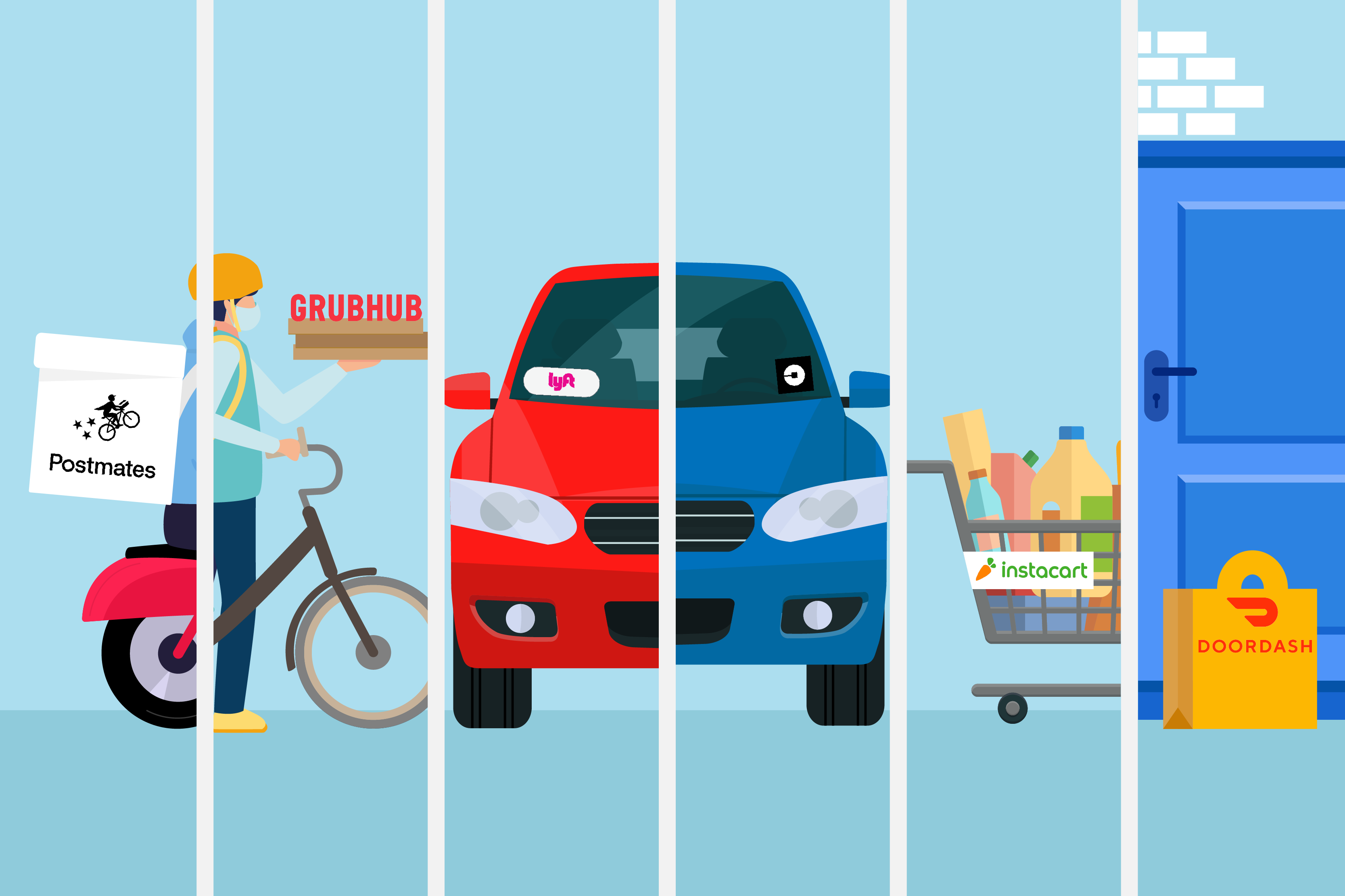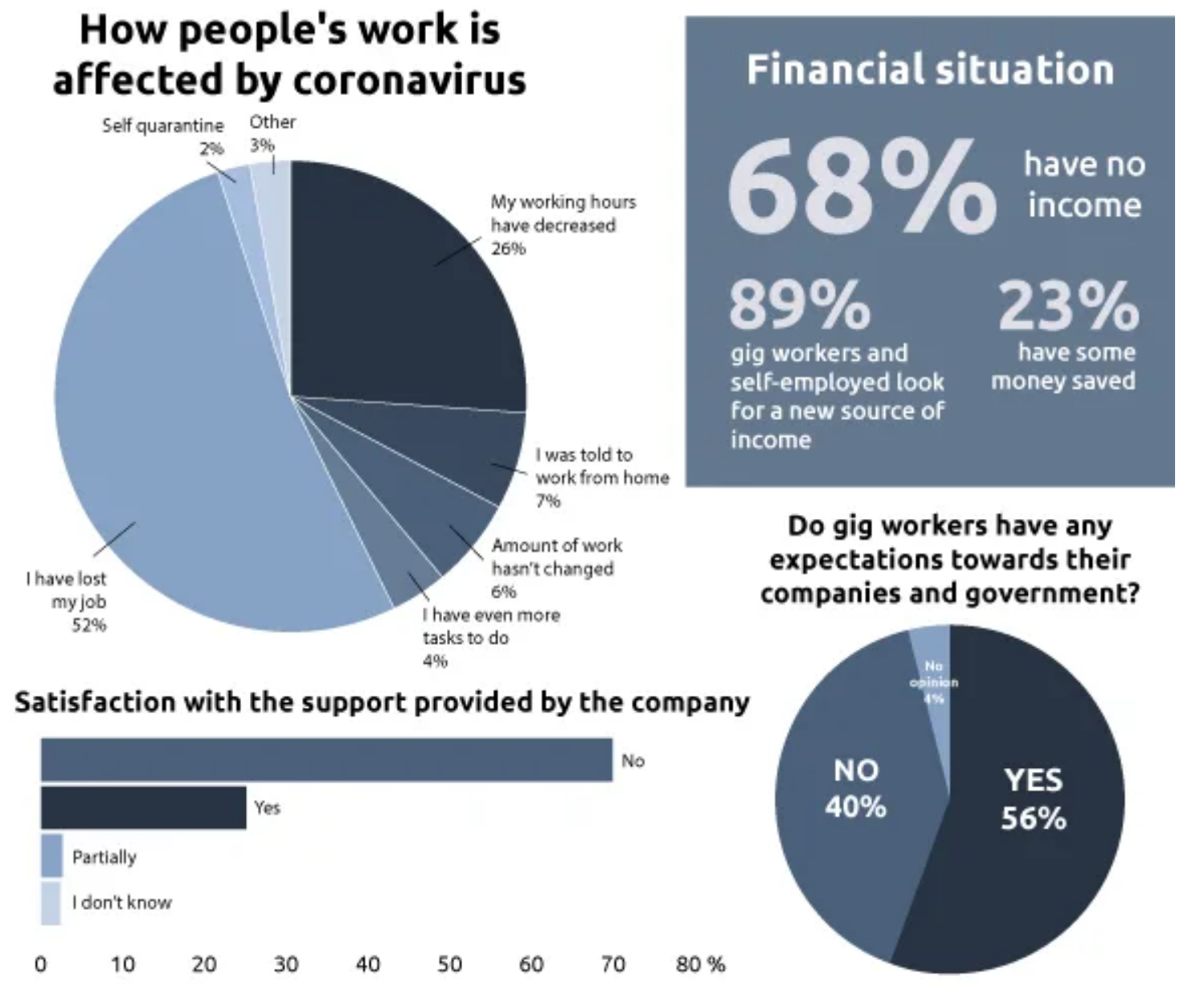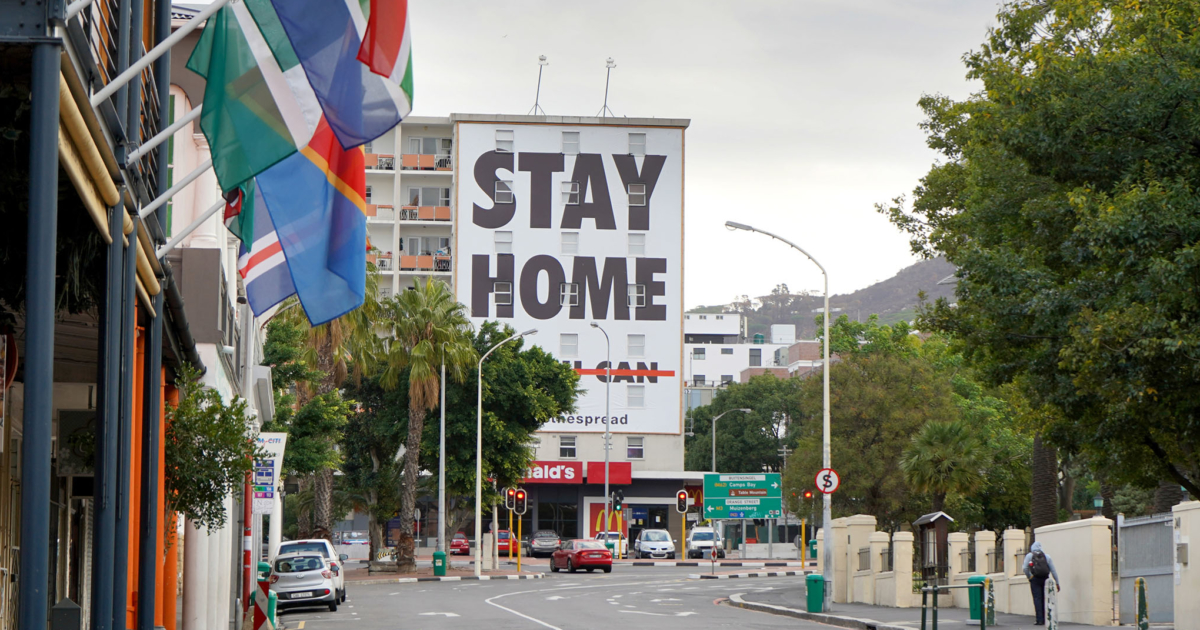
This is Part II in a three-part series exploring the fissures in global capitalism exposed by the COVID-19 pandemic.
As the world wrestles to bring the coronavirus pandemic under control – and certain nations achieve greater degrees of success than others – the impacts of neoliberal capitalism on the health crisis have been pulled into the spotlight.
For many, the pandemic has exposed the toxic effect of the neoliberal financial model which, peddled by the rightwing governments of Margaret Thatcher and Ronald Reagan in the 1980s, has long benefited multinational corporations and their wealthy investors.
“Neoliberalism, as an economic ideology of capitalism, has depleted our public services, turned our education and healthcare into profit-driven business, hoarded profits at the expense of undervalued and underpaid workers, favoured profitability of a militarized world over human security and wellbeing, and aggravated inequalities between people and countries,” writes the women's rights activist Nela Porobić Isaković.
The sentiment is shared by Marxist geographer David Harvey, who argues forty years of neoliberalism has left the public totally exposed and ill-prepared to face a public health crisis on the scale of coronavirus. The full scope of neoliberalism – or “laissez-faire economics,” which prescribes minimal government interference in the economic activities of individuals and societies – is being revealed by the pandemic.
Under the neoliberal model, not everyone is affected as severely as others by the virus. Some have the ability to work from home; others are losing their jobs. Some households can stockpile their food shelves to ensure survival; others are relying on foodbanks. With the right gadgets and resources at their disposal, some parents are home schooling their children with success; without a home environment geared for home schooling, other children are missing out on their education.
As the Confederal Group of the European United Left/Nordic Green Left writes: “COVID-19 exposes the destructive legacy of neoliberalism.” One of the most poignant examples of the impact neoliberalism has had exacerbating the legacy of the global health crisis can be found in the so-called gig economy.
The gig economy is defined as independent contractors, online platform workers, contract firm workers, on-call workers and temporary workers. In the gig economy, workers typically enter short-term contracts with companies to provide services when and where the company needs them. Due to their growing dependency on gig workers, companies like Deliveroo and Uber, the forerunners of this increasingly common business model, have faced mounting negative press for the exploitative nature of ‘on-demand’ working.
In this economy, fluctuating work hours on a weekly or even daily basis make budgeting nearly impossible. Offering scarce workers’ rights – no protection against unfair dismissal, no right to redundancy payment, and no right to receive minimum wages, paid holidays or sickness pay – the gig model of employment, rather than innovative, is increasingly seen at its core to be exploitative.
The precarity of this neoliberal business solution has been further revealed by the coronavirus pandemic. While others are able to self-isolate if they show coronavirus symptoms, and have access to sick pay and other employee rights, many working in the gig economy don’t have access to such safety nets and therefore don’t have the luxury of self-isolating.
Aside from physical health risks, many gig workers have expenses to pay. Delivery drivers, for example, often have high vehicle financing and maintenance costs to cover Even prior to the pandemic, drivers had to work in excess of thirty hours a week just to break even. With income streams significantly dissolved by the crisis, many gig workers are struggling to make ends meet.
Acting as a “middleman,” gig economy bigshots like Uber and Deliveroo are freed of any responsibility over the health, safety and financial wellbeing of their contracted workers. As the New Internationalist writes: “The Covid-19 crisis has exposed what is, at its core, a business model that is founded upon the exploitation of workers, a model that puts all of the physical risks of doing business onto workers, and allows platform companies to absolve themselves of significant responsibility.”
Uber has come under intense criticism for its manipulative working model, so much so that in response to COVID-19, the multinational ride-hailing company introduced what activists and trade unions have been demanding for years: a policy to pay drivers 14 days' sick pay if they test positive for coronavirus.
It’s not just "traditional" gig working companies in industries that are generally low paid – such as delivery and transportation – that are coming under fire for their exploitative business models. More and more skilled professionals are also being forced into contractual ways of working, devoid of traditional employee rights.
The precarious and exploitative condition of skilled professional workers placed on temporary "freelance" contracts has been brought into focus during the coronavirus pandemic. The BBC, a so-called pillar of Western media driven by an ethos to be “independent, impartial and honest,” is itself facing an army of contractual workers riled for being dumped on the financial support scrapheap – ineligible for government provision during a time of extraordinary need.
Without a definitive employed or self-employed status, PAYE Freelancers – a category of workers that has been steadily rising at the BBC in recent years – have fallen through the gaps of Chancellor Rishi Sunak’s COVID-19 financial safety net. These contractual workers are regarded as "freelance" by the BBC but employed by the UK’s tax authority HMRC as they pay tax on their income at source.
As a consequence, these contracted workers have found themselves ineligible to the financial support for furloughed employees and unqualified for the financial provision for self-employed. Justifiably outraged, these PAYE Freelancers are facing a long and arduous battle with the BBC and UK government to receive the financial support they require as their contracts diminish due to the pandemic.
As the COVID-19 disruption continues to unfold, neoliberalism and its associated discourses of freedom and flexibility, which lie at the heart of the gig economy, are being unmasked at their most destructive points.



















